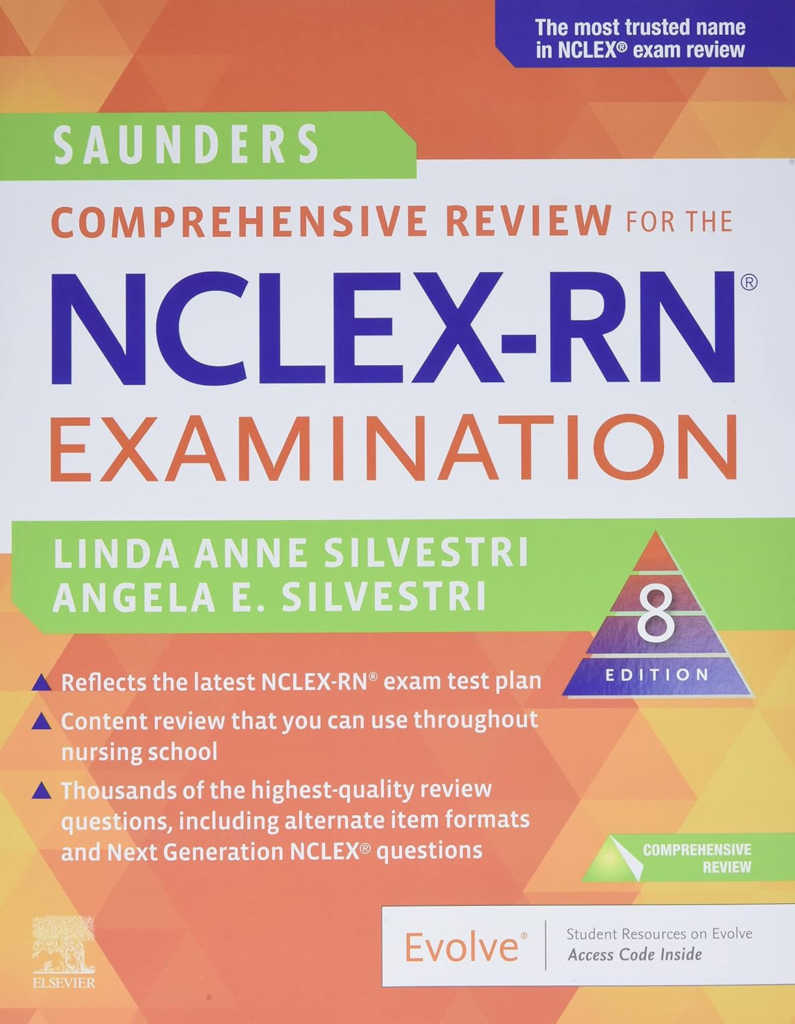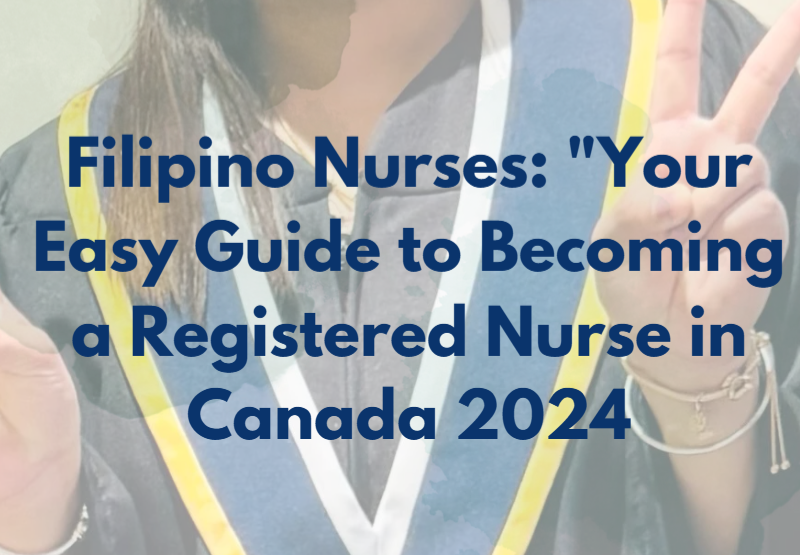Filipino Nurses: A step-by-step guide for Filipino nurses to become Registered Nurses in Canada in 2024. Explore requirements, costs, timelines, and practical tips for a successful transition to Canadian healthcare.
Why Choose Canada for Your (Filipino Nurses) Nursing Career?
- High Demand: Canada needs skilled nurses, increasing job security.
- Competitive Salaries: Attractive pay and benefits for nurses.
- Work-Life Balance: Emphasis on manageable work hours and quality of life.
- Path to Permanent Residency: Opportunities for PR through healthcare-focused immigration pathways.
- Advanced Healthcare System: Exposure to modern practices and technology.
- Professional Development: Access to training, specialization, and career growth.
- Supportive Work Environment: Multicultural and collaborative healthcare teams.
- Quality of Life: Safe environment, excellent education, and healthcare for families.
- Recognition of Skills: Value placed on international nursing experience and expertise.
Eligibility Criteria for Filipino Nurses
- Basic Requirements:
- Nursing degree recognized in the Philippines.
- Valid nursing license in the Philippines.
- Language Proficiency:
- English proficiency tests (IELTS, CELBAN) – required scores.
- Proof of Nursing Experience:
- Minimum years of experience.
- How recent experience impacts the application.
- Brochure for Filipino Nurses Wanting to Work as Registered Nurses in Canada – Vancouver Philippines Consulate General
KNOW MORE IN DETAIL
The global Filipino nurse: An integrative review of Filipino nurses’ work experiences
Step-by-Step Guide to Becoming an RN in Canada
- Step 1: WES Credential Evaluation
- Importance of World Education Services (WES) credential evaluation.
- Step-by-step process to apply for WES evaluation.
- Common questions about document submission and verification.
- Step 2: NCLEX-RN Exam
- How to apply for the NCLEX-RN exam.
- Tips for preparing for the exam and the passing rate.
- Differences between the Philippine nursing exam and NCLEX-RN.
- Step 3: NNAS Application
- What is the National Nursing Assessment Service (NNAS)?
- Required documents for NNAS application.
- Typical timeline for NNAS assessment and how to track progress.
- Step 4: Apply for Nursing Registration in a Specific Province
- How to choose a province in Canada (Ontario, British Columbia, Alberta, etc.).
- Specific registration requirements for popular provinces.
- Importance of checking each province’s nursing body guidelines.
- Step 5: Bridging Programs (if Required)
- What are bridging programs, and who needs them?
- Costs and duration of common bridging programs.
- Tips for applying and how to succeed in the program.
- Step 6: Applying for a Nursing Job in Canada
- How to search for jobs as a newly registered nurse.
- Tips on writing a resume and preparing for interviews.
- Networking in Canadian healthcare settings.

How to become rn in canada 2024
Common Doubts and Frequently Asked Questions
Q1: Do I need a specific visa to work as a Filipino nurse in Canada?
- Yes, Filipino nurses need a work permit to practice in Canada. This may involve a Temporary Work Permit or a Permanent Residency through skilled worker programs. A job offer can support the application. Nurses may also study in Canada using a Study Permit if pursuing a bridging program.
Q2: Is the NCLEX-RN exam mandatory for Filipino nurses?
- Yes, the NCLEX-RN exam is mandatory for Filipino nurses seeking to become Registered Nurses in Canada. It assesses their competence to practice safely. Each province requires passing the NCLEX-RN for RN licensure, confirming that internationally educated nurses meet Canadian standards in clinical knowledge and skills.
Q3: Can I work while waiting for my nursing license?
- Yes, you can work in non-nursing healthcare roles while waiting for your nursing license, such as a healthcare aide, personal support worker (PSW), or nursing assistant. These roles provide valuable experience in the Canadian healthcare system. Some provinces also allow supervised practice for internationally educated nurses.
Q4: How long does it take to become an RN in Canada from the Philippines?
- The process to become an RN in Canada from the Philippines typically takes 1.5 to 3 years, depending on individual circumstances. It starts with WES credential evaluation, taking 2-3 months. The NNAS assessment may take 6-12 months. Preparing for and passing the NCLEX-RN can require 3-6 months. Additional language proficiency tests may add a few months. If a bridging program is needed, it can take 6 months to 2 years. Processing times vary based on provincial requirements and document verifications. Patience is crucial, as delays can occur during assessments and while waiting for exam dates or admissions.
Q5: How much does the entire process cost?
- The cost for Filipino nurses to become RNs in Canada ranges from $5,000 to $15,000 CAD. This includes WES credential evaluation (about $300 CAD) and the NNAS assessment ($650-$800 CAD). The NCLEX-RN exam fee is approximately $400 CAD, plus any prep materials or courses. Language tests (IELTS or CELBAN) cost $250-$300 CAD. If a bridging program is needed, it can range from $5,000 to $12,000 CAD, depending on the program and duration. Additional expenses include visa fees, travel, and living costs. Financial assistance options, such as loans or scholarships, are available to help manage these costs.
Q6: What if I fail the NCLEX-RN?
- If you fail the NCLEX-RN as a Filipino nurse, you can retake the exam after a 45-day waiting period. You have multiple attempts, but each requires paying the exam fee again. Use this time to review weak areas, consider enrolling in prep courses, and join study groups. Each province may have limits on the number of retakes, so check specific guidelines. Focus on targeted practice and consider professional tutoring if needed. Staying persistent and adjusting your study strategy increases your chances of passing the next attempt.
Q7: What are the main differences in nursing practice between the Philippines and Canada?
- Nursing practice in Canada differs from the Philippines in several ways. In Canada, nurses have a broader scope of practice, often performing advanced tasks like medication administration, patient assessments, and care planning independently. Canadian healthcare emphasizes a multidisciplinary team approach, with nurses collaborating closely with physicians, pharmacists, and other professionals. The nurse-to-patient ratio in Canada tends to be lower, allowing for more individualized care. Additionally, Canadian nursing focuses heavily on evidence-based practice, critical thinking, and following strict protocols. Communication style, documentation standards, and patient privacy regulations are also more formal and detailed in Canada compared to the Philippines.
Q8: Can I bring my family with me while pursuing my nursing career in Canada?
- Yes, you can bring your family to Canada while pursuing your nursing career. If you’re applying for a work permit, your spouse and dependent children may qualify for a open work permit or study permit. Alternatively, if you apply for permanent residency through a skilled worker program, you can sponsor your spouse and children for permanent residence once your application is approved. Ensure you meet the eligibility requirements for family sponsorship and provide necessary documentation for your family members. This allows your family to live and work or study in Canada while you pursue your career.
Tips for a Successful Transition to Canadian Nursing
- Networking and Mentorship: Importance of connecting with Filipino and Canadian nursing associations.
- Professional Development: Importance of gaining Canadian-specific certifications like CPR and ACLS.
- Cultural Adaptation: Tips on understanding Canadian healthcare ethics and communication styles.
- Self-Care: Emphasize the need for mental health support during the transition.

FIGS Zamora High Waisted Jogger Style Scrub Pants for Women — Slim Fit, 6 Pockets, High Rise Yoga Waistband Women Scrub Pants
Resources for Filipino Nurses Aspiring to Work in Canada
- Websites and Forums:
- Canadian Nurses Association (CNA)
- Filipino Nurses Association of Canada (FNAC)
- Online forums and Facebook groups for Filipino nurses in Canada.
- Test Preparation:
- Recommended books and online resources for NCLEX-RN.
- Study tips and how to join study groups.
- Credential Evaluation:
- Links to WES and NNAS application pages.
- “Essential WES Document Checklist: Step-by-Step Guide for a Smooth Credential Evaluation Process” 2024 – brandednurses
- Bridging Program Details:
- A list of popular bridging programs with links to their official websites.

Saunders Comprehensive Review for the NCLEX-RN Examination
Conclusion
Becoming an RN in Canada as a Filipino nurse is a rewarding journey, offering career growth and a high standard of living. While the process may take time and effort, the opportunities for professional development, financial stability, and a better quality of life make it a worthwhile pursuit.

